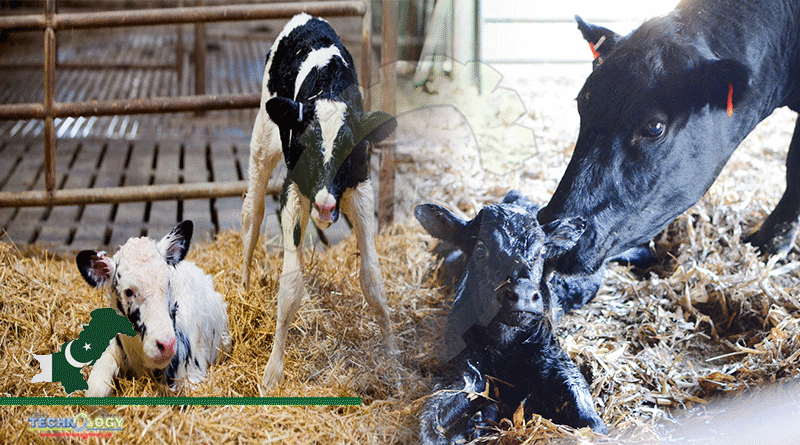Punjab’s Livestock and Dairy Development has announced first birth of calves through embryo transfer technology, in a major development.

Punjab’s Livestock and Dairy Development has announced first birth of calves through embryo transfer technology, in a major development in animal reproduction in the country.
Secretary Livestock Saqib Zafar has welcomed the technology as it will help in the protection of local breeds, besides improving the reproduction.
He also congratulated experts of University of Veterinary & Animal Sciences and livestock’s Okara research centre over the successful experiment.
Zafar added that the development will also be helpful for Prime Minister Imran Khan’s food self sufficiency programme.
Embryo Transfer
Embryo Transfer is a little more conventional than In Vitro Fertilization. It involves the use of specific hormones which have the follicle stimulating properties of donor animals. Like In Vitro Fertilization, embryo transfer is commonly used in large livestock animals—like heifers and cows, according to a veterinary website.
During the embryo transfer process, donors are bred with artificial insemination. About seven days after artificial insemination, the embryos are “flushed” from the donor animal’s uterus. This process is non-surgical. The eggs are then either transferred to a new donor or are frozen to be used at a later date.
Breeders and livestock owners may opt for embryo transfer to increase an animal’s reproductive efficiency. In cows, embryo transfer can even increase year-round reproductive efficiency. This can give breeders the chance to multiply the success of superior pedigrees.
Originally published at Daily Pakistan
